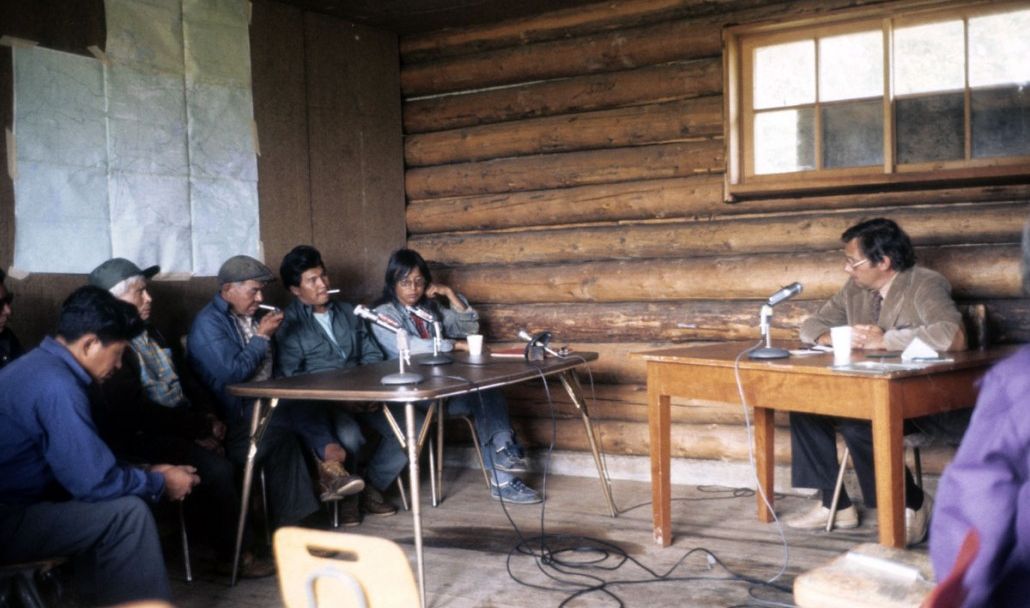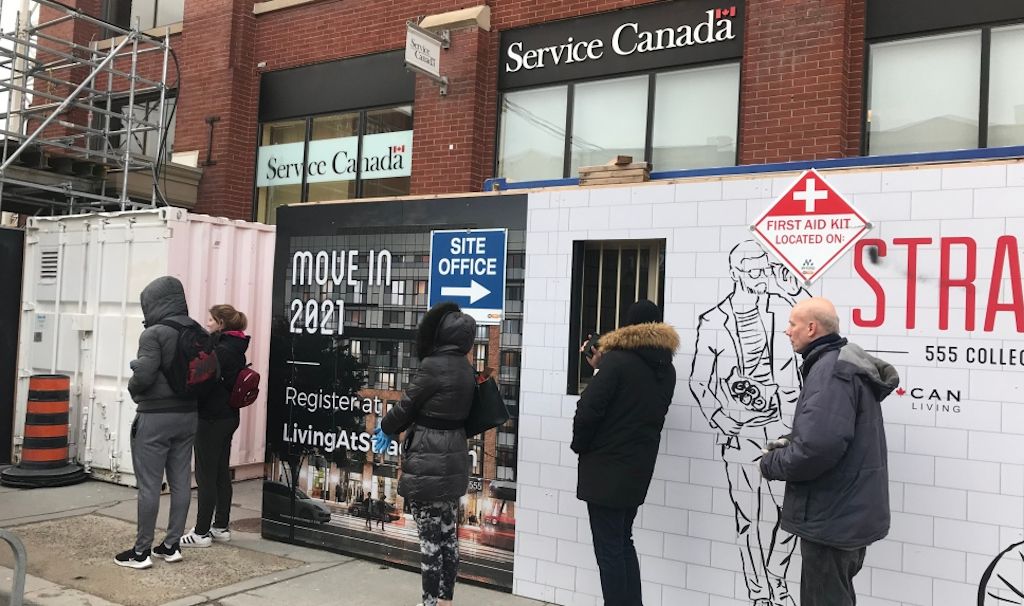Thomas Berger sadly passed at the age of 88 on April 28. His may be a new name for some, particularly for younger generations, but the impact he had on Indigenous people in Canada is profound. He leaves a great (and rare) legacy as a former Supreme Court judge, NDP politician and lawyer.
In his expansive career he was instrumental in multiple groundbreaking court cases regarding Indigenous rights and titles. Berger was a long-time legal counsel to the Nisga’a Nation, arguing for the Nisga’a in the 1960s in the Calder case, which resulted in a monumental decision by the Supreme Court of Canada in 1973, recognizing that Aboriginal Title existed at the time of the Royal Proclamation of 1763 and had never been extinguished. This was the first time the Canadian legal system acknowledged Aboriginal Title outside of colonial law. By 2000, the Nisga’a Treaty was signed, the first modern day treaty in BC. Berger was adopted by the Nisga’a House of Wilps Baxk’ap.
He was appointed in 1974 to lead the inquiry of the proposed Mackenzie River Valley pipeline. At that time, it would be the most expensive private construction project in the world. The inquiry was tasked to examine how such a project would impact the communities along the extensive pipeline route that would reach from Alaska, across northern Yukon, then south along the Mackenzie River Valley, through Alberta, and ending in the United States.
After being appointed, he immediately sought local advice on how to go about the inquiry, including from former Délı̨nę Chief George Kodakin. Berger sent his chief legal counsel to live in Délı̨nę for six months and travelled there himself two or three times to familiarize himself with the community before the inquiry began.
Indigenous leaders remark on how Berger was known for listening. Former Northwest Territories (NWT) Premier Stephen Kakfwi, who was born in a traditional Dene bush camp at Fort Good Hope, to full-blooded Slavey parents, said “Berger saw it as an opportunity for Canada to hear the voices of Dene and their plans for their people and land.” The inquiry was slated to last 12 months but in the end, lasted three years.
“He took it to a fundamental question, is it going to be good for the Northwest Territories? And do people want a pipeline down the valley – their valley? We had all these plans and a pipeline was just not in there,” said Kakfwi. He said that calling for a 10-year ban on oil and gas development in the Mackenzie Valley with an eye toward settling land claims: “was revolutionary, you know, it changed Canada overnight.”
This was a decade before Indigenous rights were recognized in the Canadian Constitution. Section 35 of the 1982 Constitution recognizes and affirms the existing aboriginal and treaty rights of the aboriginal peoples of Canada. It was three decades before the Duty to Consult was affirmed by the Supreme Court of Canada in several decisions (from 2004 to 2010).
Contrast this to the proforma consultation with Wet’suwet’en on the Coastal Gas Pipeline or various Indigenous communities around the Trans Mountain Pipeline. In these “consultations,” many Indigenous people said their concerns were not heard, as it was part of an exercise to rubber stamp the proposed constructions. Berger took his commission to all 35 communities along the Mackenzie River Valley as well as cities across Canada. He held formal hearings in Yellowknife to get the views of experts. And following this, he held community hearings across the NWT and the Yukon. He heard people in communities across the North voice their concerns, wishes and teachings of the land and their way of life in their own languages. The inquiry cost $5.3 million, and produced over 40,000 pages of text and evidence, comprising 283 volumes.
The commission recommended that no pipeline be built through the ecologically sensitive northern Yukon and that there be a moratorium of 10 years on a pipeline through the Mackenzie Valley to settle land claims and establish conservation areas and sanctuaries for vulnerable species. This effectively stopped the pipeline. Berger also recommended that Northern Yukon, north of the Porcupine River, be established as a National Wilderness Park to protect the caribou herds. Since then, two parks, constitutionally protected from development have been created and land claims have been settled. The Mackenzie River Valley pipeline project finally dissolved in 2017.
Berger’s impact on Indigenous rights continued well beyond the Inquiry, including in Nunavut. Nunavut Premier Joe Savikataaq said the report Berger produced in 2005 focusing on education, “was critical in outlining the path forward for meaningful Nunavut Inuit participation in our territory and society.”
Ethel Blondin-Andrew, a Dene woman and former MP from Tulita, NWT, remembers Berger as “very principled, very stable, very intelligent [and] well-read” – and importantly, a great listener. “He taught a lot of people the value of what you get when you listen,” she said. “He liked to get all the information and not just jump out and respond, but to gather it, to mull it over.”
Berger patiently listened to and learned from Indigenous communities and fought for their rights. He succeeded in having rights enshrined in Canadian law, giving strength to the inevitable future legal battles. Relying on the colonially imposed legal system has its limits within a capitalist society but Berger’s impact on Indigenous rights in Canadian law will continue to be taken up by the next generation of those who fight for Indigenous rights to land and a way of life.



